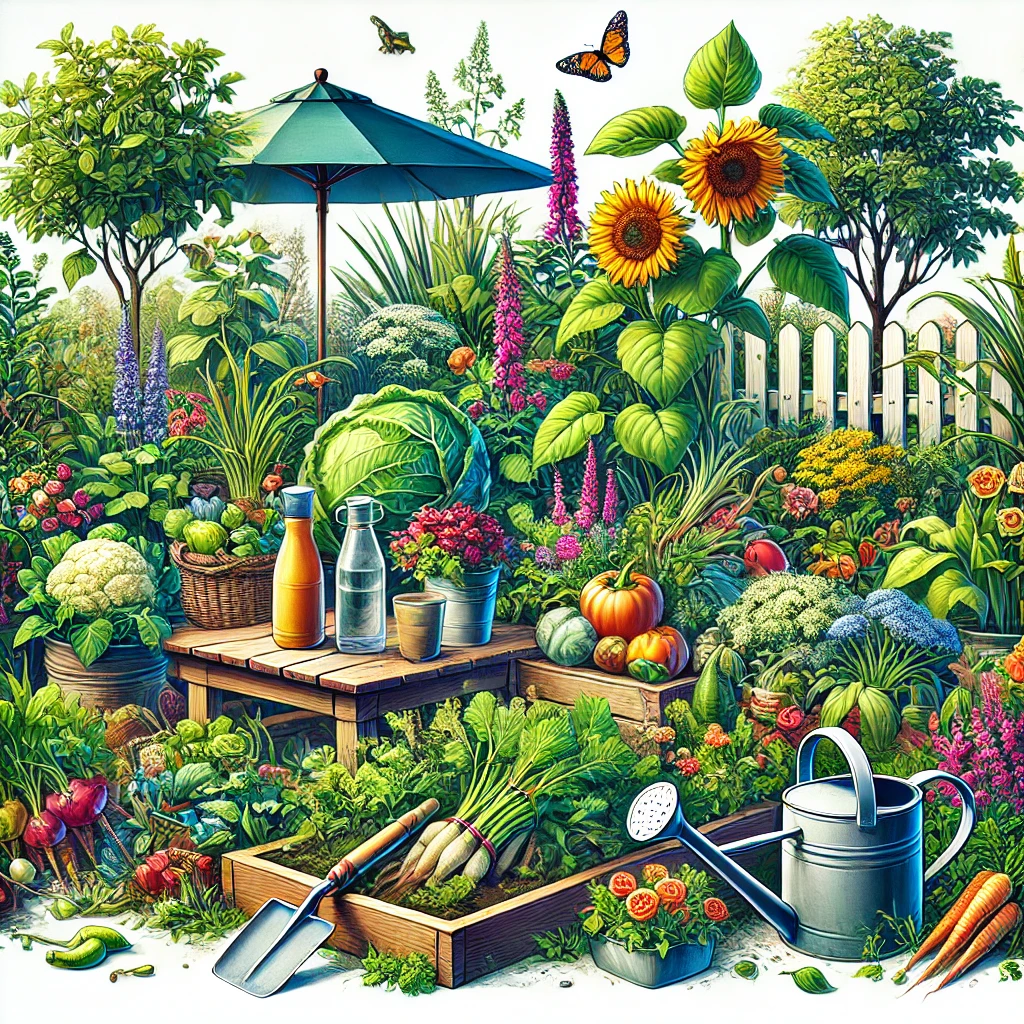Starting a home garden can be a rewarding and fulfilling hobby. Not only does it provide you with fresh produce and beautiful flowers, but it also offers a great way to relax and connect with nature. Whether you have a spacious backyard or a small balcony, here are some tips on how to start your own home garden.
1. Choose the Right Location
Selecting the right location for your garden is crucial for the success of your plants.
Tips for Choosing a Location:
- Sunlight: Ensure your garden spot receives at least 6-8 hours of direct sunlight per day.
- Soil Quality: Choose an area with well-draining soil. If the soil quality is poor, consider raised beds or containers.
- Water Access: Make sure your garden is close to a water source for easy watering.
2. Decide What to Grow
Decide what types of plants you want to grow based on your climate, space, and preferences.
Types of Plants:
- Vegetables: Tomatoes, peppers, lettuce, carrots, and beans are popular choices for beginners.
- Herbs: Basil, parsley, mint, and rosemary are easy to grow and useful in the kitchen.
- Flowers: Marigolds, petunias, zinnias, and sunflowers add color and beauty to your garden.
3. Prepare the Soil
Good soil preparation is essential for healthy plant growth.
Soil Preparation Tips:
- Test the Soil: Check the pH level and nutrient content of your soil using a soil test kit.
- Add Compost: Incorporate organic compost to enrich the soil and improve its structure.
- Till the Soil: Loosen the soil to a depth of 8-12 inches to promote root growth and drainage.
4. Planting
Planting your garden correctly ensures that your plants have the best chance to thrive.
Planting Tips:
- Follow Planting Instructions: Pay attention to the spacing, depth, and planting times for each type of plant.
- Watering: Water the plants thoroughly after planting to help them establish roots.
- Mulching: Apply a layer of mulch around the plants to retain moisture and suppress weeds.
5. Watering and Maintenance
Consistent care and maintenance are key to a successful garden.
Watering and Maintenance Tips:
- Water Regularly: Keep the soil consistently moist, but not waterlogged. Water early in the morning to reduce evaporation.
- Weeding: Remove weeds regularly to prevent them from competing with your plants for nutrients.
- Fertilizing: Feed your plants with a balanced fertilizer according to their needs.
6. Pest and Disease Control
Protect your garden from pests and diseases to ensure healthy plant growth.
Pest and Disease Control Tips:
- Inspect Regularly: Check your plants for signs of pests and diseases.
- Natural Remedies: Use natural pest control methods, such as neem oil or insecticidal soap.
- Healthy Practices: Keep your garden clean and remove any diseased plants to prevent the spread of infections.
Conclusion
Starting a home garden is a wonderful way to enjoy fresh produce, beautiful flowers, and a connection with nature. By choosing the right location, selecting the appropriate plants, and maintaining your garden diligently, you can create a thriving garden that brings joy and satisfaction. Happy gardening!
